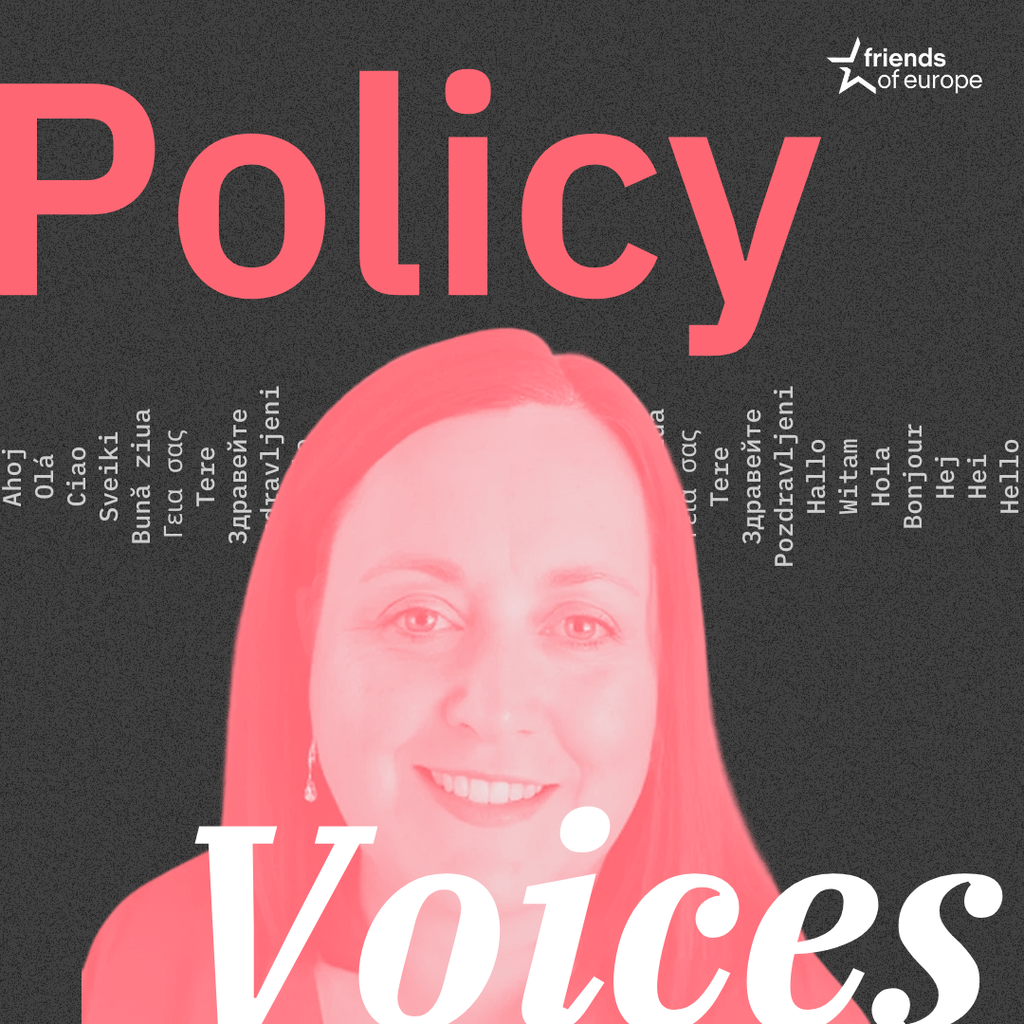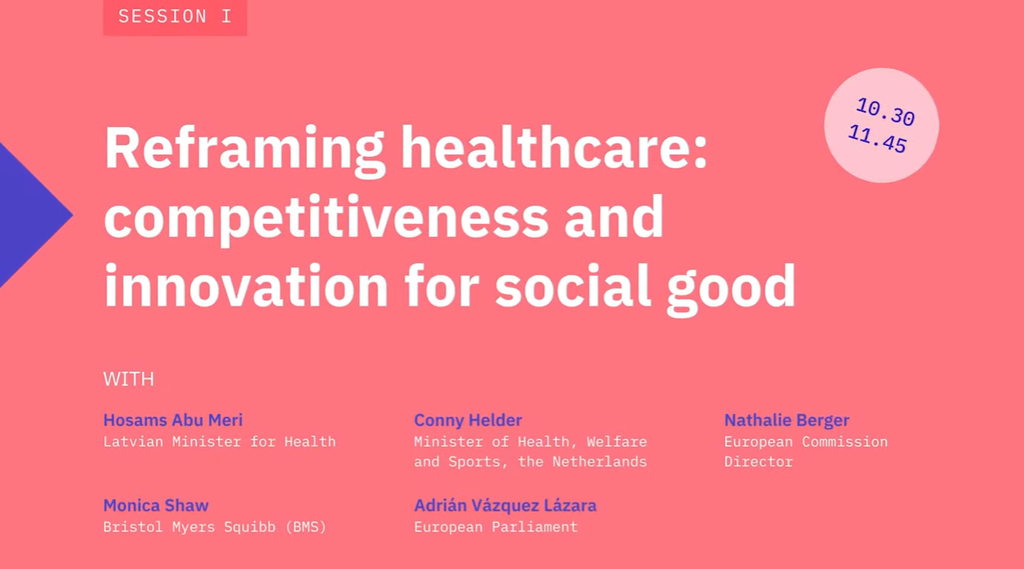Europe's moment: advancing clinical research and health innovation
Next event In person & online

- Area of Expertise
- Sustainable Livelihoods
Sustainable Livelihoods

Managing Director, Health Connect Partners
‘Co-creation’ and ‘eHealth’ are terms that often arise when policymakers attempt to grapple with the challenge of providing increasingly expensive care to a growing population of patients with a shrinking workforce of healthcare professionals.
This is particularly true in Europe, where projections show that by 2050 there will be fewer than two working-age people per non-working age person in many EU member states. The cost of care is also due to continue rising as more specialised interventions become available and the prevalence of chronic conditions increases.
It is, however, not only statistical projections of increased demand and reduced supply that are leading politicians and healthcare planners to look for new ways to provide care and prevent illness. Wider social changes are also driving the trend. As everyday consumers, European citizens are accustomed to the freedom of choice over goods and services at their convenience.
We are no longer dependent on the opening hours of banks or shops to make financial transactions, or on TV schedules to define viewing times. New technologies have allowed us to become co-creators of many of the goods and services we use. The challenge is to bring this spirit of co-creation into healthcare too.
The basic tools in this form of co-creation – the Internet, location tracking and wearable devices – are already well used in healthcare. One in twenty Google searches is reportedly health-related, while Pew Research states that 72% of Internet users searched for health-related information in 2014.
European citizens are accustomed to the freedom of choice over goods and services at their convenience
IMS Institute for Healthcare Informatics reported in September 2015 that over 165,000 health apps are currently available and the recent rise in popularity of wearable fitness devices has led market analysts to suggest a ten-fold growth of such products in the market over the next five years.
Yet use of this technology for co-creation in healthcare is still limited. IMS noted in particular that the lack of integration between health app data and electronic health records is a fundamental unmet requirement and underlined that only 2% of apps they studied have that capability. This number points to one of the key barriers to co-creation between patients and healthcare professionals in eHealth: technical interoperability.
The good news is that this is within relatively easy reach. In November 2015, the European Commission adopted the Refined eHealth Interoperability Framework (ReEIF), which is to ensure that disparate and diverse organisations can share information and knowledge between their respective ICT systems.
However, the focus of the ReEIF is on exchanges between healthcare providers (hospitals, physicians and pharmacies) and makes few recommendations that would allow patients to participate in that data exchange.
To take a real step forward towards co-creation between healthcare professionals and patients, we need to move beyond concepts of interoperability at institutional level to addressing integration with consumer electronics and ambient information from patients’ everyday interactions.
Here again, technical standards will be a very important tool and early integration platforms are emerging with tools such as Apple HealthKit, ResearchKit and CareKit and Google Fit, which provide the tools for app and device developers to build interoperability into their solutions.
The challenge is big, but the prize of co-created care is even bigger
The challenge, though, is not only technical. New governance models will have to be established that allow data from outside the healthcare establishment to be integrated into clinical records and used for clinical decision-making. These models are slowly emerging in the field of chronic care, in particular Chronic Obstructive Pulmonary Disease (COPD) and diabetes. But there is still resistance to integrating ambient data and data added directly by the patient.
A further significant challenge to co-creation in health lies in changing the relationship between healthcare professionals and patients so that the patient is seen as an equal and active partner in care. Our current systems are largely based on expert services paid for by unit of consumption – we do not pay doctors to keep patients well but to respond to their acute needs, and neither do we reward citizens for maintaining their health.
For the potential of co-creation in health to be realised, our systems will have to be adapted to create short-term returns for providers and patients for maintaining health, rather than treating illness.
Yet as we seek to make those changes to empower the patient as an equal, we must keep in mind that patients can also be vulnerable, weak and temporally unable to actively engage. The biggest challenge in driving real co-creation in health is therefore flexibility.
We need to envisage a new concept of healthcare in which patients can share all the data and information they want to bring from their everyday life into the decision-making process, but in which the system can support them in times of weakness and need.
The challenge is big, but the prize of co-created care is even bigger because it will ultimately lead to a society that rewards wellness and uses a wide range of resources to promote health.
This article is part of Friends of Europe’s upcoming discussion paper ‘Disruptive models of healthcare for Europe’, which brings together the views of Friends of Europe’s large network of health professionals, policymakers, scholars and business representatives on disruptive innovation for health. This discussion paper closes a series of three high-level roundtables that Friends of Europe organised last year to examine the steps needed to create “disruptive models” for overhauling and improving healthcare systems across the EU.
Next event In person & online

Past event In person & livestreamed

Past event In person

Past event In person & livestreamed





Stay informed
We use cookies and similar technologies to adjust your preferences, analyze traffic and measure the effectiveness of our campaigns. Learn more about our privacy policy.